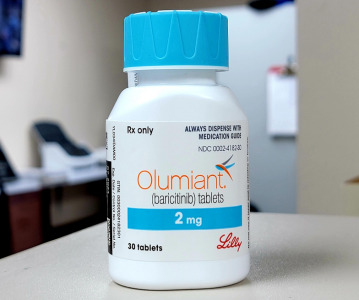Women in Pharma: A leader's approach to diversity advocacy
.png)
In our monthly series on women in the pharmaceutical industry, we interview leading experts in the pharmaceutical supply and value chain to discuss the importance of gender diversity in healthcare, the workplace, and beyond.
This month we sat down with Susan Whitehead, Principal and Founder of BioSavvy Advisors, a consulting firm specialising in leadership services and advisory support services for the life science industry. Her work has emphasised diversity of all kinds in leadership roles to meet company goals with authenticity and meaningful impact. We discuss how she brings her own experiences to the table when advising others.
1. Could you please give an overview of yourself and your role?
I’ve spent over 25 years in the biotech, pharmaceutical, and medical device industries, specialising in translating strategic vision into impactful results. My career started in the lab, and over the years, I was fortunate to transition into program management and eventually take on broader roles that led to executive leadership and governance.
Recently, I started up my own consulting firm called BioSavvy Advisors where I specialise in providing fractional leadership, guiding organisations through critical phases like start-ups, strategic planning, and providing hands-on project management services. My focus is on converting complex strategies into actionable steps, aligning teams, and ensuring that company goals are met. In addition to consulting, I’m passionate about coaching emerging leaders, particularly those that can contribute towards diversifying the face of leadership in the pharma industry. I help those eager to become more effective leaders advance in their careers by providing direct feedback, support, and guidance so they can build their confidence to succeed.
2. EndPoint News named you one of the top LGBTQ+ BioPharma Leaders in 2023 – how have your experiences shaped the work you do?
Being named one of the top LGBTQ+ BioPharma Leaders last year by EndPoint News was an honour that reflects my commitment to authenticity and making a meaningful impact in the industry. My experiences as both a leader and an advocate have deeply shaped the work I do. As a biracial woman of colour with a female partner, I've often found myself feeling either alone or judged in spaces where I don’t typically see others like me. These experiences have driven me to create spaces where everyone, regardless of their background, feels seen, heard, and valued. I understand firsthand the importance of representation and the power of diversity, which is why I’m so passionate about this work.
My recent volunteer work as a mentor for LGBTQ+ youth with Out in Tech and my past efforts in fundraising for the SF AIDS Foundation, which was founded to address the AIDS crisis that disproportionately impacts racial minorities and gay & bisexual men, are just a few examples of ways I strive to give back.
3. How can the pharmaceutical supply chain and industry better represent and advocate for the healthcare needs of underrepresented groups?
To better represent and advocate for the healthcare needs of underrepresented groups, the pharmaceutical supply chain and industry can take several impactful steps. First, it's crucial to actively incorporate diverse perspectives in decision-making processes. This means involving representatives from various backgrounds in leadership roles and ensuring that diverse voices are part of the conversations around drug development and distribution.
Second, supporting initiatives that advance healthcare access and equity is essential. For example, in my role with Bay Area Young Survivors (BAYS), I’m leading the launch of a Health Equity and Diversity, Equity, & Inclusion (DEI) strategic initiative. This campaign will initially focus on training along with improving and establishing internal policies to create a more inclusive culture. Long term, the vision will be to collect data on healthcare disparities that members face to inform education and advocacy efforts. Through these types of efforts, we can enhance healthcare access and outcomes to ensure that emerging solutions benefit those who need them most.
Lastly, industry leaders should use their platforms to raise awareness and drive conversations around the importance of diversity and representation in healthcare, ensuring that all communities’ needs are effectively recognised and met.
4. Why is it important for the wider pharma industry to champion diversity from both a business perspective and a healthcare perspective?
Championing diversity in the pharma industry is crucial from both a business and healthcare perspective. From a business standpoint, diversity drives innovation, and creativity. A diverse team brings a range of perspectives and experiences, leading to more effective problem-solving and the development of novel solutions. This diversity can also enhance a company's ability to connect with and understand the broader patient population, ultimately leading to more successful treatments and strategies.
From a healthcare perspective, diversity ensures that the needs of all patient groups are considered and addressed. Diverse clinical trials and research initiatives lead to more accurate and comprehensive data on how different populations respond to treatments. This inclusivity improves the effectiveness of medications and therapies across demographics and helps reduce health disparities. By championing diversity, the pharma industry can not only improve outcomes for underrepresented groups but also improve their bottom line.
5. On a personal level, why is it important for you to support the start-up ecosystem for women’s healthcare and technologies?
Supporting the start-up ecosystem for women’s healthcare and technologies is crucial to me because it addresses significant gaps and promotes equity in care. Through my role as a Limited Partner with organisations such as The CANCER FUND, I focus my personal investments on advancing treatment options and improving access to care in underrepresented and underfunded areas. By backing these types of initiatives, I can do my part to drive meaningful innovation in healthcare for women and at-risk populations.
6. If you could give one piece of advice to the Future Women Leaders of Pharma, what would you say?
My advice to future Women Leaders in Pharma: don’t be afraid to step outside your comfort zone and be brave. Bring your unique perspective and use your voice, not just for yourself but for those who are looking up to you. Embrace courageous creativity – be open to trying new ideas and tackling challenges head-on. Stay authentic to your experiences, refuse to self-reject, and don’t shy away from speaking up, even when your ideas are different. By being bold and authentic, you’ll not only make a real impact and pave the way for others, but you’ll also drive meaningful change to better support the diverse communities we serve in healthcare.
Do you have a story to tell about diversity? If you'd be interested in being featured in our Women in Pharma series, please reach out to [email protected].
Related News
-
News Women in Pharma: Moving beyond discussions and into best practice at CPHI Milan
In this second CPHI Milan special of our monthly series, we cover the key takeaways from the Diversity & Wellbeing track held on October 10, 2024. -
News AstraZeneca invests in AI collaboration for cancer drug trials
The British-Swedish pharmaceutical giant is partnering with biotechnology firm Immunai Inc to increase the efficiency of some cancer drug trials. -
News Ozempic and Wegovy prices questioned as Novo Nordisk faces US Senate hearing
The CEO of Novo Nordisk was grilled during a US Senate committee hearing on September 24, 2024, in which the exorbitant prices of the Danish company’s blockbuster drugs Ozempic and Wegovy were called into question. -
News The BIOSECURE Act: implications for the pharma supply chain
On September 9, 2024, the US House of Representatives voted to pass the bill titled the BIOSECURE Act (the Act), which lists several Chinese companies in the pharmaceutical supply chain. The Act will prohibit American companies from contracting or doin... -
News On Track at CPHI Milan: Thermo Fisher Scientific Track Sponsor interview
With CPHI Milan just around the corner, we sat down with some of the sponsors for this year’s conference tracks to discuss the most pressing topics in pharma. -
News CPHI Milan Speaker Spotlight: Pharma Manufacturing and Localisation in Africa
In the run-up to CPHI Milan, we sit down with some of the experts and thought-leaders speaking at this year’s conferences. -
News US BIOSECURE Act passed by US House of Representatives
The controversial act, which has already impacted several foreign companies operating in the US, was passed by the House of Representatives on September 9, 2024. It is now headed for the US Senate before it can be signed into law by President Joe Biden... -
News Eli Lilly licenses rheumatoid arthritis manufacturing in Africa
American pharmaceutical company Eli Lilly has signed a partnership with Egyptian organisation Eva Pharma to localise manufacturing of rheumatoid arthritis treatments in Africa.
Position your company at the heart of the global Pharma industry with a CPHI Online membership
-
Your products and solutions visible to thousands of visitors within the largest Pharma marketplace
-
Generate high-quality, engaged leads for your business, all year round
-
Promote your business as the industry’s thought-leader by hosting your reports, brochures and videos within your profile
-
Your company’s profile boosted at all participating CPHI events
-
An easy-to-use platform with a detailed dashboard showing your leads and performance

.png)





